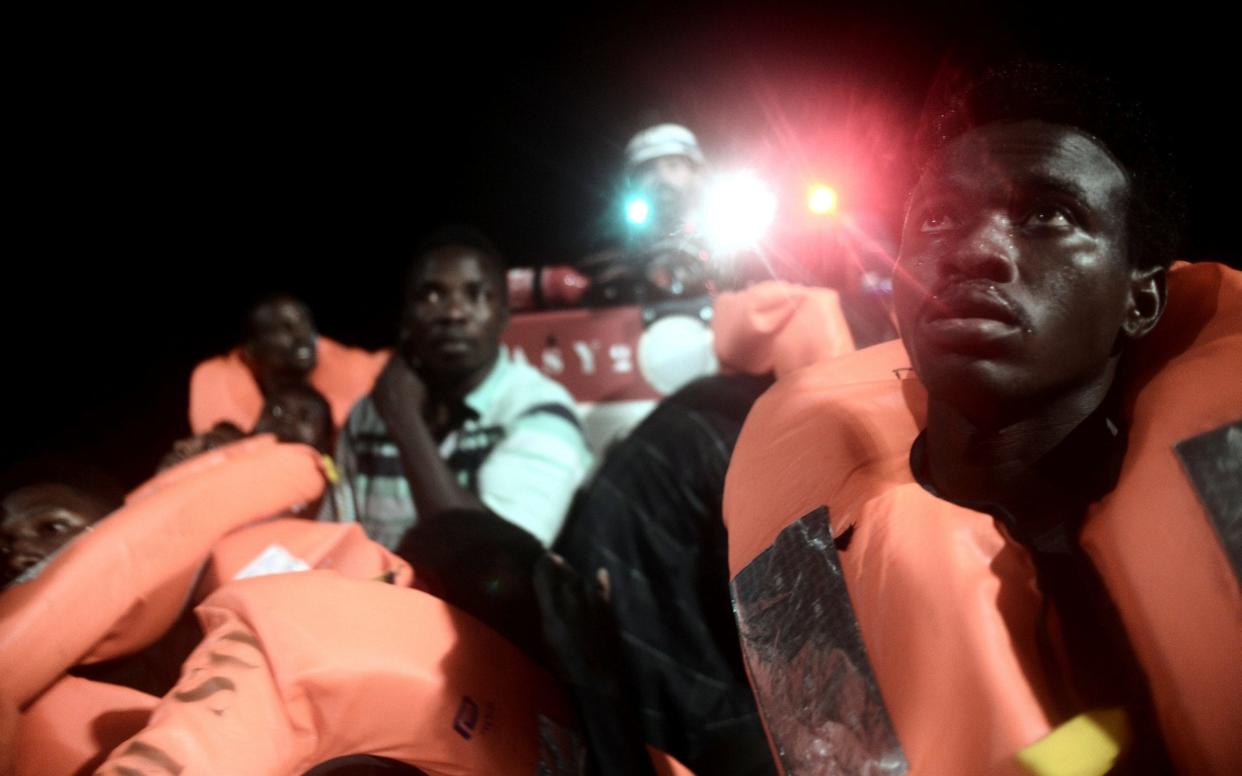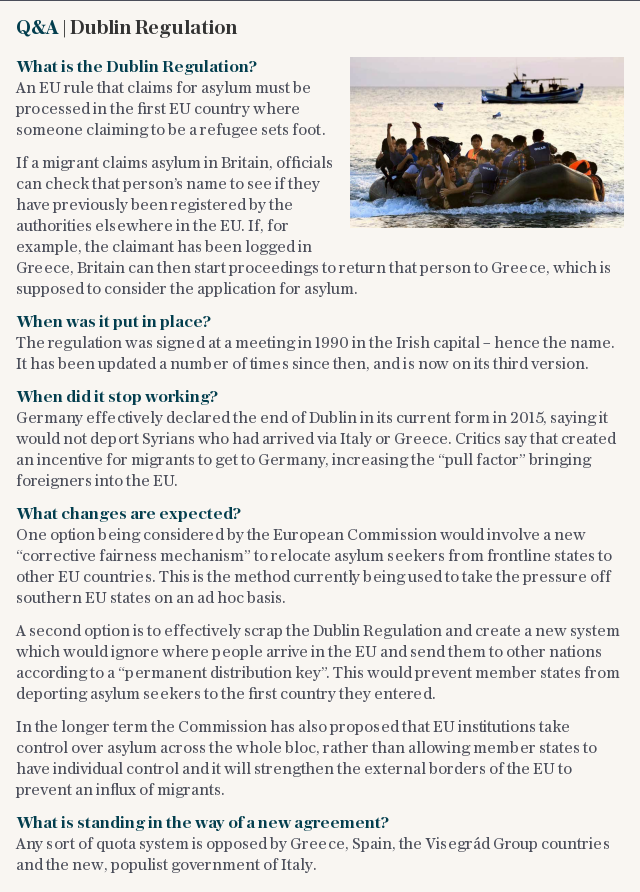No country has agreed to host offshore EU migrant centres, Brussels admits as migration divisions widen

No African country has yet agreed to host offshore EU migrant screening centres on its soil, the European Commission admitted on Thursday as the Visegrad group of countries said they would boycott a Brussels mini-summit called to bridge deep divisions over migration policy.
Dimitris Avramopoulos, the European Commissioner for migration, announced EU plans for “regional disembarkation centres” in Brussels on Thursday, a week before EU leaders meet for talks that could topple Angela Merkel’s government.
He said that the EU wanted to begin talks with Algeria, Egypt, Libya, Tunisia, Niger and Morocco but none had been consulted over the idea and no official proposals had been put to them.
The embarrassing admission was made ahead of a mini-summit on Sunday before a June 28 full European Council meeting in Brussels, which is set to be dominated by splits on how to handle migration.
In another blow to the hopes of agreeing reforms to EU asylum law, the anti-immigrant leaders of the Visegrad group of Poland, Czech Republic, Hungary and Slovakia said they would not attend the mini-summit after meeting in Budapest.
Austrian Chancellor Sebastian Kurz, who has allied himself with the Visegrad group on migration will attend with Germany, France, Italy, Spain, Greece, Bulgaria, the Netherlands and possibly Belgium and Malta.
"We are not going to attend, they want to re-heat a proposal that we've already rejected," said Polish Prime Minister Mateusz Morawiecki.
His Hungarian counterpart Viktor Orban said that the summit was "against the normal customs of the EU" and that the appropriate forum was the EU leaders' meeting scheduled for next week.

Meanwhile, the Italian prime minister said he had won assurances from Germany that a draft document on the migrant crisis to be presented at the mini-summit will be scrapped.
Italy was angered that the document placed too much emphasis on the blocking of migrants trying to reach secondary countries like Germany and France and speeding up the process of pushing them back to the first EU country they landed in - with Italy shouldering the biggest burden.
Matteo Salvini, the hard-right interior minister who wants to expel half a million unauthorised migrants and block NGO boats from disembarking migrants and refugees in Italian ports, had raised the prospect of Italy snubbing the meeting on Sunday.
"If we are going to Brussels to receive the homework already prepared by the French and Germans... the prime minister would be better off saving the cost of the trip," he tweeted.
But a compromise appeared to have been reached on Thursday, with Giuseppe Conte, the prime minister, wringing concessions from Chancellor Angela Merkel.
"The Chancellor clarified that there was a misunderstanding," Prof Conte wrote on Facebook. "The draft released yesterday will be shelved.
He said Sunday's mini-summit would not end with a written accord but "a summary of the issues" which will be discussed at a key EU summit on June 28-29.
Jean-Claude Juncker called the mini-summit on Wednesday after meeting with Mrs Merkel and France's Emmanuel Macron in Germany. He is keen that disagreement over reforms to the EU’s Dublin Regulation and Asylum Procedures laws do not derail hard-won deals struck on migration policy.
Rome wants a complete overhaul of the controversial Dublin Regulation, which states that migrants and refugees must lodge their asylum claims in the first EU country they step foot in - which largely means Italy, Greece or Spain.
One change, favoured by Northern countries and opposed by Italy, extends the period of time in the Dublin Regulation where an asylum seeker can be in a country before being sent back to the first EU country they landed in from six months to between five and ten years.
Under another proposal, a mandatory migrant relocation scheme would kick in in situations of “extreme crisis”, which is a proposal bitterly opposed by the new Austrian government as well as Hungary and its Visegrad country allies.
The summits could prove crucial for German Chancellor Angela Merkel, whose Christian Social Union coalition partners have challenged to wrest an EU solution to the migration crisis from her fellow leaders
Horst Seehofer, the interior minister and CSU leader, has given her a two week ultimatum to negotiate a solution or he says he will unilaterally order police to start turning away migrants at the German border. That would leave Mrs Merkel with little choice other than to sack him, which could bring down her government if he pulls the CSU out of the coalition.


 Yahoo News
Yahoo News 
